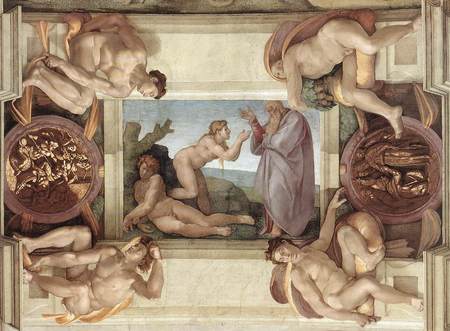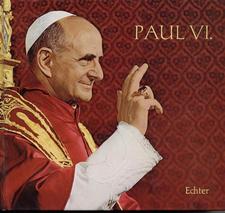This morning I came across a quote taken from the works of St. Peter of Damaskos (a 12th century) that I think begins to open a new window for our spiritual life. I think the mature Christian is a person who understands that the life of grace is a continuum: sometimes we live fully in the illumination of God’s life generating a virtuous life. Other periods of life we may struggle with a particular way of thinking and acting. I will say we can’t cave to thinking that we are hypocrites if we work on conforming our lives to the love, compassion and wonder of God’s Way. True conversion is neither THAT immediate nor lasting. To me, those who claim otherwise are fooling themselves and shallow and their spiritual advice not worth the paper it is written upon. The spiritual life takes time and it’s a deliberate work that is very tough-going and heart-wrenching. Whether the spiritual work is fully engaging in what is said in Matthew 25, or believing that Jesus of Nazareth is the Bread of Life, or to love our enemies, not stealing, murdering, or breaking (bending, stretching?) one’s promises and vows of poverty, chastity and obedience. We can’t reduce or empty the real questions which make life meaningful. Any reduction of the heart’s needs is too severe and unreasonable and therefore not of God.
The spiritual life is proposed to be an ascesis (an intentional work of the mind, heart & body). It is not always self-evident nor is it fully realizable without real, lively attention to grace. The fruit of grace is an openness and freedom to be the self. As one person taught, we are a mystery, and this constitutes this very self. What is veiled and unveiled takes intellectual, spiritual and affective maturity. And from my experience not too many of us have the required maturity. A periodic author that I have consulted has said, “It does not merely aim at the satisfaction of human understanding, it must “deepen” it. Thus, to replace the word “mystery” with the word ‘Father’ in relation to God renders an extremely comprehensible term which at the same time identifies God’s uniqueness and intensifies the mystery. The religious sense prepares us for such a revelation but revelation intensifies the depth of this religious sense” (A. Spencer).
In the end, we have to rely not on the negative to define who we are, and what we want to become. We are more than our “sin.” It is not the negative that will make us free in Christ. It may take to the end of our life to truly be what we are made to be. What we want may be illusive if we don’t do the work of conversion. We are more than our sin, we are more than the pathologies and our ideas that live rent free in our heads. Why is it that we allow toxicity to reign in the heart that tend to become unhealthy? I can say that I have personally struggled for years with defining myself and others by their actions without looking honestly at personal history and reality and the true desires of the human heart.
All this brings me to think about what it means to be in-relation to another person in a deeper way even if it breaks the convention, and challenges what has been proposed as the door to be a true son or daughter of the Lord of Life. I’m thinking of what it may mean to deal with humanity sexuality between consenting adults. I wouldn’t want to get into details here since that would be indiscrete. But I know first hand how certain religious superiors have not assisted the brethren well in dealing with matters of sexuality in a way that leads to greater freedom. In fact, the religious superiors have too readily adopted the world’s standards, in either a permissive way or in a way that does not allow for redemption. As Cardinal George said, our society now permits everything but forgives nothing.
All too often sexuality is feared and reduced to bromides. Human sexuality is supposed to be life-giving, generative, and beautiful. But it doesn’t have to be that way if we consider the perspective and way of proceeding of Eastern Christianity.
St. Peter of Damaskos writes:
Even if you are not what you should be, you should not despair. It is bad enough that you have sinned; why in addition do you wrong God by regarding him in your ignorance as powerless? Is he, who for your sake created the great universe that you behold, incapable of saving your soul? And if you say that this fact, as well as his incarnation, only makes your condemnation worse, then repent; and he will receive your repentance, as he accepted that of the prodigal son (Luke 15:20) and the prostitute (Luke 7:37-50). But if repentance is too much for you, and you sin out of habit even when you do not want to, show humility like the publican (Luke 18:13): this is enough to ensure your salvation. For he who sins without repenting, yet does not despair, must of necessity regard himself as the lowest of creatures, and will not dare to judge or censure anyone. Rather, he will marvel at God’s compassion.
As Christians we seek the hundredfold: our true happiness in this world, and our true happiness in the next (Mark 19:29). We live and act for the sake of Jesus and are promised one hundred times to inherit everlasting life and to be happy in this life. We forget that Jesus wants and begs for our happiness in this life!!!! Why is it that we forget this point in biblical revelation? How we get there takes time, love (concern for another’s well-being and destiny), and prudence. I can’t fall off the ground. So far my relationships are electric on a certain level. I am aware of my sinfulness and know my need for happiness and for redemption. Jesus tells us so. Amen.

 On the occasion of your trip to Africa in March 2009, the Vatican’s policy on AIDs once again became the target of media criticism. Twenty-five percent of all AIDs victims around the world today are treated in Catholic facilities. In some countries, such as Lesotho, for example, the statistic is 40 percent. In Africa you stated that the Church’s traditional teaching has proven to be the only sure way to stop the spread of HIV. Critics, including critics from the Church’s own ranks, object that it is madness to forbid a high-risk population to use condoms.
On the occasion of your trip to Africa in March 2009, the Vatican’s policy on AIDs once again became the target of media criticism. Twenty-five percent of all AIDs victims around the world today are treated in Catholic facilities. In some countries, such as Lesotho, for example, the statistic is 40 percent. In Africa you stated that the Church’s traditional teaching has proven to be the only sure way to stop the spread of HIV. Critics, including critics from the Church’s own ranks, object that it is madness to forbid a high-risk population to use condoms.
